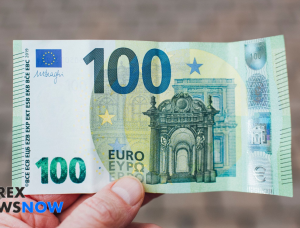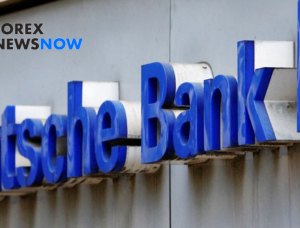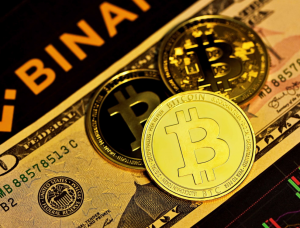
In a strategic shift, the European Central Bank (ECB) is set to pivot its focus towards reducing its balance sheet, sending ripples through financial markets amid widespread speculation about imminent rate cuts. As the ECB charts a course aimed at unwinding the expansive monetary measures adopted in response to economic challenges, investors eagerly analyze the potential impact on interest rates. The move underscores the delicate balancing act central banks worldwide face in managing economic recovery and inflationary pressures. With markets on edge and expectations running high, the ECB’s commitment to a shrinking balance sheet signals a pivotal moment in navigating the complex terrain of monetary policy.
ECB Balancing Act: Navigating Rate Cut Expectations Amidst a Shifting Focus on Balance Sheet Reduction
As the European Central Bank (ECB) convenes this week, market watchers closely scrutinize the possibility of interest rate cuts in response to mounting concerns about inflation. With inflation hitting a two-year low at 2.4% in November and core inflation following suit, investors are increasingly hedging their bets on ECB rate cuts in the coming year. Holger Schmieding of Berenberg notes that the ECB, having reached a 4% deposit rate plateau, can now turn its attention to addressing its sizable balance sheet without triggering excessive yield spread fluctuations within the euro zone.
Despite the tempting prospect of rate cuts, analysts caution against overoptimistic expectations. Isabel Schnabel’s acknowledgment of the “remarkable” and “pleasant surprise” nature of the consumer price slowdown has heightened anticipation. Currently, money markets are pricing in nearly 150 basis points of rate cuts for the upcoming year. Mark Wall from Deutsche Bank acknowledges the potential for earlier and more substantial cuts, emphasizing the ECB’s capability to decouple from the Federal Reserve.
Looking ahead, the ECB faces a pivotal decision regarding its Pandemic Emergency Purchase Program (PEPP). The potential end to reinvestments from the PEPP portfolio could mark a significant shift in the central bank’s strategy. ECB President Christine Lagarde has indicated that discussions within the Governing Council about ending reinvestments could take place soon. Deutsche Bank’s Wall suggests that if rate cuts gain traction, the ECB might expedite preliminary steps in the exit from PEPP reinvestments.
While market expectations run high, the ECB is likely to maintain a cautious approach. This week’s meeting may bring about a change in forward guidance, signaling when the reinvestments from the PEPP program will conclude. As inflation continues to be a pivotal concern, the ECB’s nuanced response reflects a commitment to a data-dependent policy approach. Investors eagerly await insights into the ECB’s stance, recognizing the delicate balance the central bank must strike between managing inflationary pressures and fostering economic recovery.
ECB Policy Shift: Navigating Opportunities and Risks for New Investors and Forex Traders
The European Central Bank’s (ECB) prospective policy adjustments, with a potential focus on balance sheet reduction and interest rate cuts, hold significant implications for new investors and forex traders. As the ECB pivots amidst inflation concerns, it introduces both opportunities and risks that can reverberate across financial markets.
For new investors, the prospect of ECB rate cuts can influence investment strategies. A dovish stance may prompt shifts in asset allocations, as investors reassess their portfolios to capitalize on potential gains in interest-sensitive instruments. However, the risk of overestimating rate cut expectations underscores the importance of cautious decision-making, especially given the inherent volatility that can accompany swift policy changes.
Forex traders face a dynamic landscape as the ECB contemplates adjustments to its policy framework. Rate differentials between the euro and other currencies may undergo shifts, impacting exchange rates and creating new trading opportunities. Traders need to stay vigilant and adaptable, adjusting their positions based on evolving central bank guidance and economic indicators. The potential acceleration in the exit from the Pandemic Emergency Purchase Program (PEPP) reinvestments adds an additional layer of complexity, requiring traders to closely monitor market sentiment and adjust strategies accordingly.
In summary, the ECB’s policy decisions have the potential to create waves in financial markets, offering new investors and forex traders opportunities for strategic positioning. However, the inherent uncertainties associated with policy shifts demand a nuanced and informed approach to navigate potential risks effectively. As the ECB’s actions unfold, astute investors and traders stand to capitalize on emerging trends in the ever-evolving landscape of global finance.
- SEO Powered Content & PR Distribution. Get Amplified Today.
- PlatoData.Network Vertical Generative Ai. Empower Yourself. Access Here.
- PlatoAiStream. Web3 Intelligence. Knowledge Amplified. Access Here.
- PlatoESG. Carbon, CleanTech, Energy, Environment, Solar, Waste Management. Access Here.
- PlatoHealth. Biotech and Clinical Trials Intelligence. Access Here.
- Source: https://www.forexnewsnow.com/forex-analysis/currency/ecbs-strategic-pivot-navigating-financial-markets-amidst-balance-sheet-reduction-and-rate-cut-speculation/
- :has
- :is
- 150
- a
- About
- acceleration
- accompany
- accordingly
- across
- Act
- actions
- Additional
- addressing
- Adds
- adjust
- adjusting
- adjustments
- adopted
- against
- ahead
- aimed
- allocations
- Amid
- amidst
- an
- Analysts
- analyze
- and
- anticipation
- approach
- ARE
- AS
- asset
- associated
- At
- attention
- await
- Balance
- Balance Sheet
- balancing
- Bank
- Banks
- based
- basis
- BE
- Bets
- between
- both
- bring
- CAN
- capability
- capitalize
- caution
- cautious
- central
- Central Bank
- Central Banks
- challenges
- change
- Changes
- Charts
- Christine
- CHRISTINE LAGARDE
- closely
- coming
- commitment
- complex
- complexity
- Concern
- Concerns
- conclude
- consumer
- continues
- Core
- core inflation
- could
- Council
- course
- create
- Creating
- currencies
- Currently
- Cut
- cuts
- decision
- Decision Making
- decisions
- Demand
- deposit
- Deutsche Bank
- discussions
- Dovish
- dynamic
- eagerly
- Earlier
- ECB
- ECB President
- Economic
- economic indicators
- economic recovery
- Edge
- effectively
- emergency
- emerging
- emphasizing
- end
- ending
- especially
- Euro
- Euro Zone
- European
- European Central Bank
- evolving
- excessive
- exchange
- Exit
- expansive
- expectations
- expedite
- Face
- faces
- Federal
- federal reserve
- finance
- financial
- fluctuations
- Focus
- following
- For
- forex
- Forward
- fostering
- Framework
- from
- Gain
- Gains
- given
- Global
- governing
- guidance
- Have
- having
- hedging
- heightened
- High
- hitting
- hold
- However
- HTTPS
- if
- Impact
- impacting
- implications
- importance
- in
- increasingly
- indicated
- Indicators
- inflation
- Inflationary
- Inflationary pressures
- influence
- informed
- inherent
- insights
- instruments
- interest
- INTEREST RATE
- Interest Rates
- into
- Introduces
- investment
- Investors
- IT
- ITS
- Lagarde
- landscape
- layer
- likely
- Low
- maintain
- managing
- mark
- Market
- market sentiment
- Markets
- May..
- measures
- meeting
- might
- moment
- Monetary
- Monetary Policy
- money
- Monitor
- more
- move
- must
- Nature
- Navigate
- navigating
- nearly
- Need
- New
- Notes
- November
- now
- of
- offering
- on
- opportunities
- Other
- pandemic
- Pivot
- pivotal
- Pivots
- Place
- plato
- Plato Data Intelligence
- PlatoData
- points
- policy
- portfolio
- portfolios
- positioning
- positions
- possibility
- potential
- preliminary
- president
- pressures
- price
- pricing
- Program
- prospect
- prospective
- purchase
- Rate
- Rates
- reached
- recognizing
- recovery
- reducing
- reduction
- reflects
- regarding
- Reserve
- response
- ripples
- Risk
- risks
- Run
- running
- sending
- sentiment
- set
- sheet
- shift
- SHIFTING
- Shifts
- signals
- significant
- sizable
- Slowdown
- Soon
- speculation
- spread
- stance
- stand
- stay
- Steps
- Strategic
- strategies
- Strategy
- strike
- substantial
- Suggests
- Suit
- SUMMARY
- SWIFT
- Take
- terrain
- that
- The
- their
- this
- this week
- Through
- to
- towards
- traction
- Traders
- Trading
- Trends
- triggering
- TURN
- uncertainties
- undergo
- underscores
- upcoming
- Volatility
- Wall
- waves
- week
- when
- widespread
- will
- with
- within
- without
- worldwide
- year
- Yield
- zephyrnet











